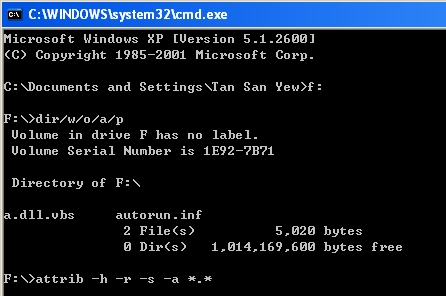Biological
There is very little information available on the biological effects of producing USB flash drives. Very little is known about the conditions workers are exposed to when aiding in the production of USB flash drives. See the Cultural section of this page for more information on biological concerns.
There are no known negative side affects to use of USB flash drives. The technology itself is utilized by males and females alike.
Social
While USB flash drives have helped immensely with sharing data across multiple computers, this technology comes at a price. Hackers have found a way to use flash drives as vessels for unleashing viruses and other harmful files onto secure networks. Tools like Switchblade make it easy for people to exploit unprotected USB ports by collecting information like:
- System information
- Network services
- Ports that are listening
- Product keys for software installed on the computer
- Local password databases
- The passwords associated with any wireless networks the computer knows
- All network passwords the user has saved to the computer
- Recent browsing history
- A list of installed patches
USB Hacksaw is much worse – it can install a Trojan on the susceptible computer which monitors all flash drive insertions to that computer. It can then email all the documents on those USB flash drives to the attacker. Some USB flash drives allow for users to save applications and software to the drive, which can lead to even more security issues if used by hackers (Johansson, 2008).

Some websites suggest removing the autorun program that comes on many flash drives to reduce the risk of transporting viruses. © 2007 TY Tan.
Cultural
Many are becoming more and more concerned with the cultural implication of USB flash drive technology. How are the materials obtained? Who are the workers that produce these devices? Are they “green” or eco-friendly? Very little information has been gathered, but those who are inclined are searching for the answer. Unfortunately, many USB flash drives are not easily recyclable. Many drives do, however, have an estimated long life. Those vendors that advertise eco-friendly products generally only mean that their flash drives are encased in recyclable materials; the electronics inside are not. Some vendors also advertise lead-free flash drives, however, many other potentially dangerous chemical are involved in the manufacturing process. Finally, many consumers are concerned that a large portion of USB flash drives are produced in China, where much of the working conditions are unknown (Norton, 2011).
Economic
The global USB flash drive market is projected to peak at 568.98 million units by the year 2015, according to a report by Global Industry Analysts, Inc. The report explains that data storage needs are moving away from complex devices to more “dumb models” such as compact flash cards, SD cards, and the like. Many consumers are heavily interested in removable storage like USB flash drives (Blanchard, 2010).
Political
There is growing concern about the use of USB flash drives as ways to introduce viruses and other malicious programs to closed networks. For this reason, many organizations (like Oregon State University) have banned the use of flash drives in many settings. This has caused file sharing methods, like Dropbox, to become more popular in these communities. See the Social section of this page for more information on how malicious programs coupled with USB flash drives can cause serious harm.
Educational
Many students use USB flash drives to transport files between home and school computers. Some institutions, like Oregon State University, have banned the use of USB flash drives because of the chance of the devises carrying infectious files that can cause issues within closed networks.

